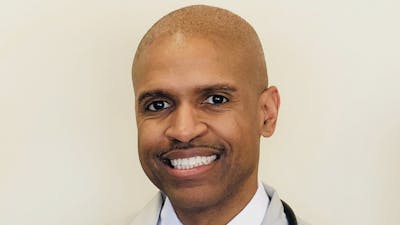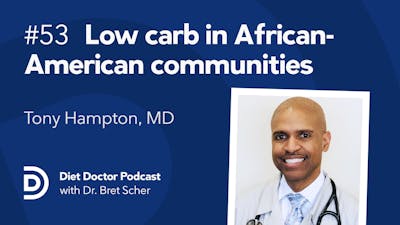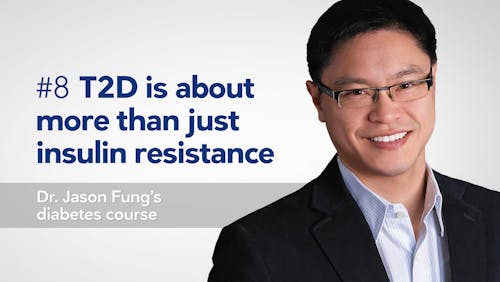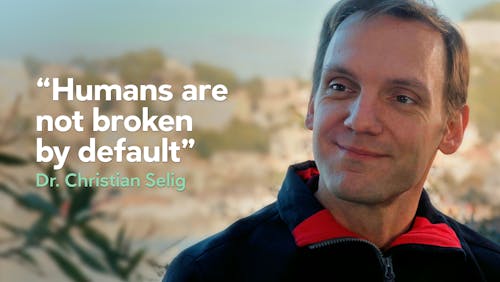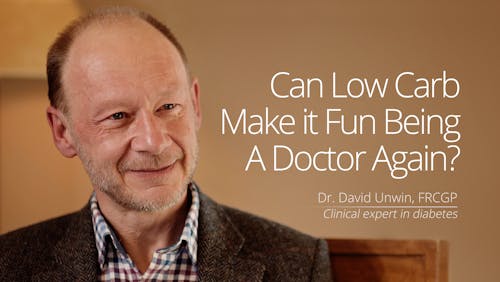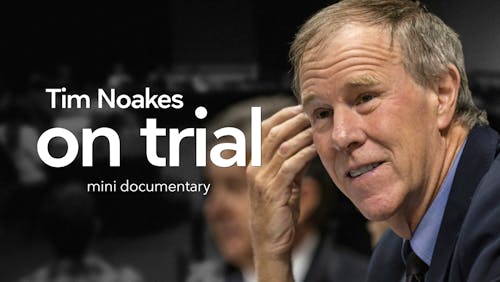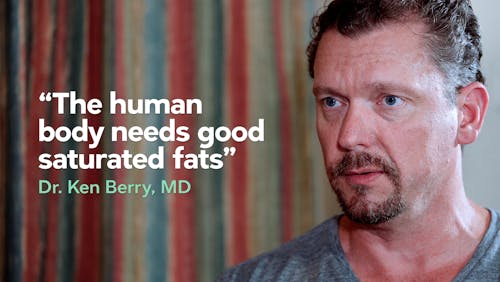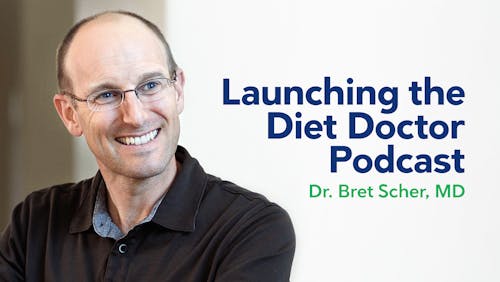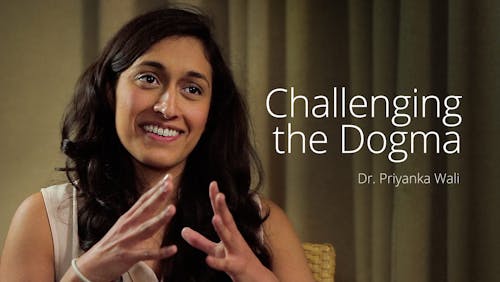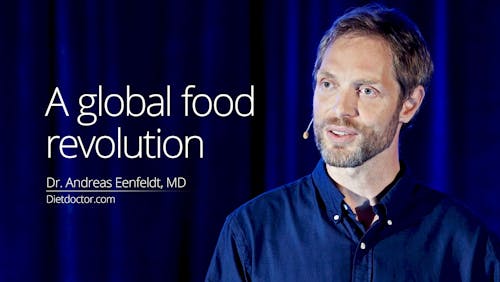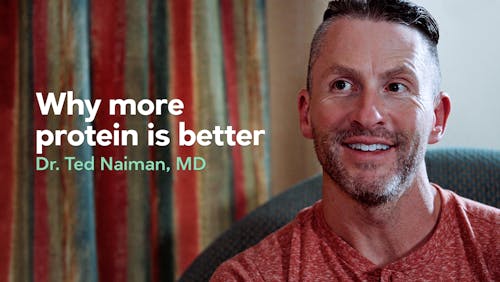Dr. Hampton: Are your relationships helping your health?
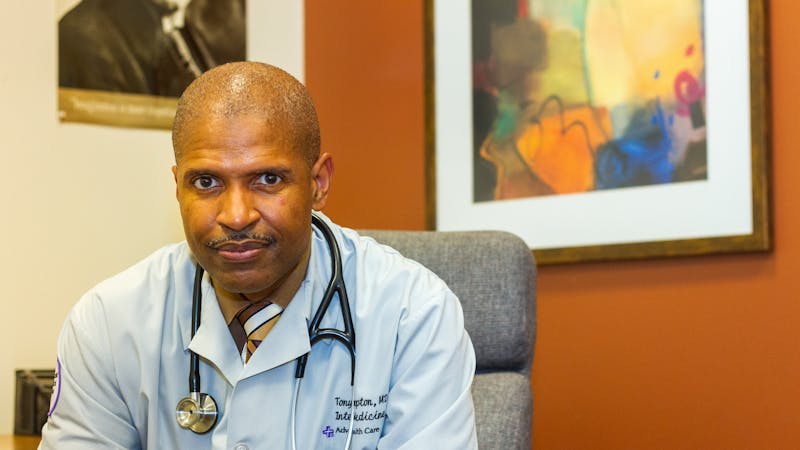
Photo: Spencer Bibbs
Dr. Tony Hampton is a family physician on the South Side of Chicago. He is writing a monthly column for Diet Doctor. This is his 10th column.
If you do, be grateful. Positive, supportive relationships can influence the extent of your health and weight-loss success.
If you don’t, you may feel sunk. It might feel that lacking someone who has your back is just one more challenge, beyond your control, that makes it impossible to succeed.
But take heart: there are things you can do to help improve your relationships and get the support you need.
“R” in ROPE is for relationships
If you’ve been reading my previous Diet Doctor columns, you will know that I have two acronyms that I use to describe the various factors that help you achieve weight loss and improved health.
The first is “Protect your N.E.S.T” in which N.E.S.T stands for Nutrition, Exercise, Stress/Sleep, Thoughts/Trauma. My nine previous Diet Doctor columns have discussed each one of those letters.
My second saying is “Use your R.O.P.E to get to your NEST.” And R.O.P.E is another helpful acronym. The R in ROPE is for relationships. (Future columns will deal with the other R.O.P.E letters. Tune in next month as I reveal the other letters.)
In my primary care practice on the South Side of Chicago, I regularly see how my patients’ significant relationships can enhance or undermine their health journeys.Remember, how healthy we feel is a perception of our reality as much as anything else. So if we feel safe, listened to, shameless, invulnerable, and supported, because our relationships are supporting us, we are more likely to feel a sense of well-being.
Healthy relationships keep the stress hormones in check because they help regulate our emotions and reduce our fears while supporting our dreams and sense of security.
But even the happiest couples in healthy relationships will go through struggles from time to time.
Those who are not in a relationship with another supportive person can feel isolated and alone. Or those who have undermining or toxic relationships can feel trapped and unsupported.
Sometimes being alone is better than being in a relationship that undermines or even sabotages your efforts.
Single moms, solo journeys
I want to tell you about a typical patient of mine. I’ll call her Nancy. She’s a single mom with two adult sons. She’s a composite, but I have many patients in my practice who have situations similar to hers.
In fact, in the community of color that I serve, 80% of the households are headed by a single mom.
Nancy works full-time at one job and now has taken a second part-time on weekends to help make ends meet. She has a boyfriend, but both her sons and her boyfriend are currently unemployed. She is carrying the financial weight of the whole family.
When she comes home from work, she’s exhausted. But her sons and boyfriend are often sitting on the couch watching TV or playing video games. Since none of them have gotten dinner ready, she pulls a meal together. But often, because she is stressed from a long day of work and she lives in a food desert, she picks up fast food on the way home rather than struggling to quickly get dinner on the table. Who can blame her?Nancy has hypertension and is newly diagnosed with type 2 diabetes. I’ve recommended that she start eating a low-carb diet, to help her lose weight, lower her blood sugar to reverse her diabetes, and improve her hypertension.
But how can Nancy make such a change in light of her family situation? I know she faces inordinate challenges to eating low-carb and focusing on improving her health and weight. In fact, her boyfriend doesn’t even want her to lose weight. He thinks she is more attractive the way she is.
These are not healthy, supportive relationships for Nancy. If she doesn’t get support and find a way to prioritize her own needs, it may have devastating consequences on her health.
Setting boundaries
What can Nancy do? As a loving mom, she feels too guilty to establish rules or alter the dysfunctional dynamic. She’s afraid that she will lose the love of her sons and her boyfriend if she sets some boundaries and expectations. But it is said so often it’s a cliché: you need to put on your own oxygen mask first.
Nancy needs to prioritize her own health. And she needs to realize that in doing so she is also helping her sons and boyfriend “man up” and have more healthy, successful lives themselves.Many of my patients struggle with establishing healthy boundaries. A book I highly recommend to them is Boundaries by Christian psychologists Dr. Henry Cloud and Dr. John Townsend. A New York Times bestseller, the book’s ongoing popularity speaks to the needs of so many people who struggle with difficult relationships. As the authors write, the essence of boundaries is self-control, responsibility, freedom, and love.
As the authors note, clear boundaries help you avoid situations where you end up feeling pressured, manipulated, or resentful. They also help you avoid pressuring others until they give in.
With help from exercises and examples in the book, Nancy can perhaps start by talking about the help she needs at home from her boyfriend and sons to improve her health. She can let each one know what she will do and no longer do, and what they can each do to help her. She has to set up reasonable expectations, communicate those expectations, and she has to learn to say no.
Nancy has to not feel defeated or frustrated, but rather to know that it is possible for her to have healthier relationships. She, like all of us, can learn new skills to achieve the support she needs. But she may need to be prepared to step away from unhealthy relationships, even if they are with people you love. Self-care is not selfish.
Unhealthy relationships in childhood
In column 7, I talked about how trauma and neglect, and poor quality, unreliable relationships with adults who care for us in the early years, may translate into life-long impacts on our future health and wellness.
I talked about the famous ACES research (Adverse Childhood Experiences). Now some 25 years of ACES studies show a direct correlation between high ACE scores and the incidence of physical, mental, emotional, and behavioral problems in adulthood.
This information can make some people, especially those from troubled backgrounds, feel doomed and depressed.
But I want to continually stress that positive relationship skills can be learned. And the ACEs studies show that even one positive and supportive relationship in your life — no matter who it is with — can counteract negative relationships.That supportive relationship could be a friend, aunt, uncle, grandparent, sibling, co-worker, or even a teacher or a mentor.
It does not have to be a spouse or partner. But you are lucky if it is someone closest to you, like an intimate partner.
Learning to love and support our partners
Two of my favorite experts on positive, loving, supportive intimate relationships are Drs. John and Julie Gottman, of the Gottman Institute in Seattle. The husband-and-wife psychologists have studied couples’ patterns of relating for more than 40 years.
The Gottmans have now at least half a dozen books, webinars, and even train other therapists in how to support couples to establish healthy, supportive relationships. I highly recommend all of their books, but especially their first, The Seven Principles of Making Marriage Work.
The Gottmans note that relationships are hard work and that being “good” at loving other people doesn’t come naturally to most of us, especially if we did not grow up with positive role models. But they note that you can learn and practice key skills, especially healthy, productive communication patterns.Another book I highly recommend is The 5 Love Languages by Gary Chapman. It guides people through the different ways that people give and receive love. The five love languages are:
- Words of affirmation – such as compliments and words of appreciation
- Quality time together – spending time doing things together
- Receiving gifts – showing love through giving things
- Acts of service – doing something for your spouse to help them
- Physical touch – affection and physical connection – but don’t make the mistake that what is pleasurable for you is always pleasurable for your spouse.
Once you identify and learn to speak your spouse’s primary love language you will have discovered the key to a long-lasting, loving marriage.
When to step away
Not all relationships are salvageable. Some are toxic and down-right dangerous or deadly. Some people stay in toxic relationships because they are afraid to be alone or fear that any relationship, even a toxic one, is better than none at all.
It is very important to step away from unhealthy relationships, even if only temporarily or to get the therapy or support you need. Focus on people who are more nourishing to you. Set boundaries and expectations – it is only then that others can rise to meet those expectations.An important principle in the Boundaries book is that physically removing yourself from an unhealthy situation with another person will help maintain boundaries.
Taking time off from a person can be a way of regaining ownership over some out-of-control aspect of your life where boundaries need to be set.
Helpful relationships take many forms
For maximum support, does your healthy relationship have to come in the form of an intimate partner like a spouse or significant other?
Not at all. As I said above, it can be a friend, family member, mentor, co-worker, or even connections from an online support group — like Diet Doctor’s Facebook group for members.
To sum up, relationships matter to your health. You may struggle to have healthy supportive relationships, or, may have never been taught the skills you need to be successful. But the skills of successful relationships can be learned and practiced.
Thanks for reading. Until next time, remember to “Protect your N.E.S.T.”
